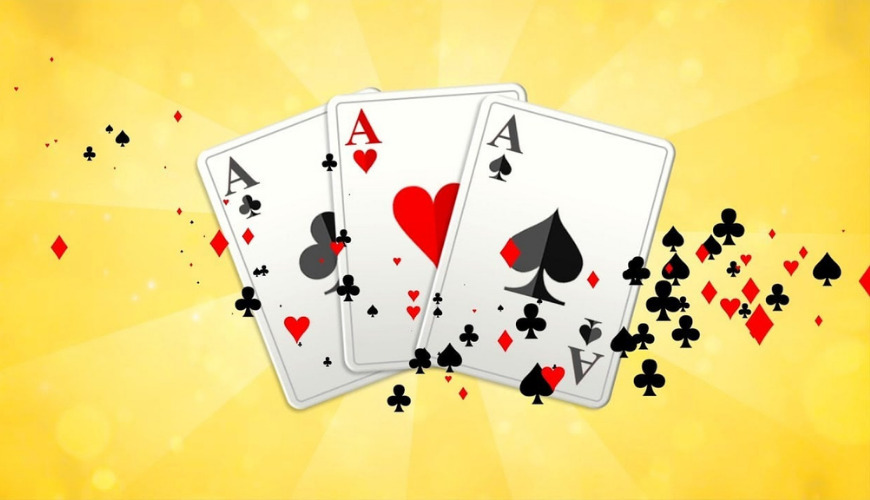Teen Patti, often referred to as Indian Poker, is a widely played card game from India’s subcontinent that originated as a gambling form of entertainment during social gatherings and festivals. Played with a standard deck of 52 cards, Teen Patti can accommodate three to six players who compete to form the best three-card hand or force their opponents out by forcing them into folding early.
Teen Patti game involves each player being given three cards face down, then betting begins based on the strength and intuition about other players’ cards. Betting will continue until only one player remains or until a predetermined limit has been met.
Poker and Teen Patti are both popular card games that involve strategy, skill, and a bit of luck. While they share some similarities, they also have distinct differences that set them apart.
Poker is a well-known game that originated in the United States and has gained international popularity. It is typically played with a standard deck of 52 cards and involves multiple rounds of betting. The objective of the game is to have the best hand or to convince other players to fold, thus winning the pot of money. Players have to understand the different poker hands rankings, calculate probabilities, and employ various strategies such as bluffing and reading opponents’ body language.
Teen Patti Offers Numerous Advantages To Its Players.
- Entertainment and Social Interaction: Teen Patti is designed as a social game, offering friends, families, or even strangers an enjoyable pastime through friendly competition and entertainment. Teen Patti fosters socialization while providing enjoyable pastime for all involved parties.
- Cognitive Skills Development: Playing Teen Patti requires strategizing, analyzing probabilities and making quick decisions with limited information – activities which help develop critical thinking, problem-solving, logical reasoning and mathematical calculations skills.
- Psychological Development: Teen Patti is an engaging game combining skill and chance. By taking part, players learn how to cope with wins and losses, build resilience, manage emotions like excitement, disappointment and patience and improve psychological well-being and emotional intelligence.
- Memory Enhancement: Teen Patti requires players to remember which cards have been played, and use this information when making informed decisions. Engaging regularly in such card games can enhance both memory and overall cognitive capabilities, contributing towards an improvement of these areas of function.
- Analytical Thinking and Risk Evaluation: Teen Patti requires players to assess the strength of their hand, read opponents’ actions and expressions, calculate risks and rewards, and develop analytical thinking abilities in addition to being able to make informed decisions in uncertain situations. Through Teen Patti these skills develop.
- Social Bonding and Networking: Teen Patti can serve as an effective tool for social gatherings to foster relationships between players, strengthen existing ones, and forge new ones. It offers the chance for lighthearted discussions while sharing experiences. Finally, Teen Patti provides the perfect way to enjoy each other’s company.
- Cultural Significance: Teen Patti has long held cultural significance in India and other regions, especially during festivities and celebrations. Playing the game helps individuals connect to their cultural heritage, traditions, and values more fully.
How to Select Money Earning Games

When selecting the best money earning games, there are various factors to take into consideration.
- Legitimacy and Trustworthiness: To select legitimate, licensed platforms or providers is key when purchasing games online. Search for well-established companies with positive reputations that offer secure payment systems. Read user reviews, check user feedback and ensure the game operates within legal boundaries in your jurisdiction.
- Game Type and Skill Level: Determine which genre and skill level best suit your interests and skills when selecting money-earning games. These may include casino, eSports, trivia quizzes, skill-based competitions or any others that might suit you best. Assess yourself accordingly so as to select games which meet both preferences and expertise levels.
- Entry Fees and Payouts: Carefully consider the entry fees or participation costs associated with each game before selecting one to play. Understand its prize structure and payout percentages – some games may offer higher entry fees with greater rewards while other may feature lower entry fees with smaller returns; evaluate risk-reward ratios before making decisions that align with both your financial goals and comfort level.
- Skill Vs Luck: Determine whether the game relies more heavily on skill or luck to succeed. Skill-based games allow you to hone your abilities and increase the odds of victory over time; luck-based ones depend more heavily on random outcomes; select games according to which type you prefer!
- User Base and Competition: Carefully consider both the size of the user base and level of competition within your game. A larger player pool usually means bigger prize pools and increased opportunities to make money; however, it could also mean increased competition; find a balance that meets both your skill set and competitive nature.
- Game Rules and Transparency: Ensure the rules and terms for games you play are clear, fair and balanced so all players have equal opportunity at winning. Avoid games which appear ambiguous or unfair practices as these may compromise player satisfaction and lead to greater losses overall.
Conclusion
Teen Patti is a widely popular card game that provides entertainment, social interaction, cognitive development, psychological benefits and cultural significance in India and certain regions. Combining skill with luck, Teen Patti promotes strategic thinking, memory enhancement and emotional resilience while simultaneously offering cultural significance.
Money earning games, like Teen Patti when played with real stakes, provide an opportunity for real rewards to be earned. However, when selecting money-earning games it is essential to prioritize factors like legitimacy, trustworthiness, game type, skill level, entry fees payouts competition transparency responsible gaming policies and personal preferences when selecting such an experience.
